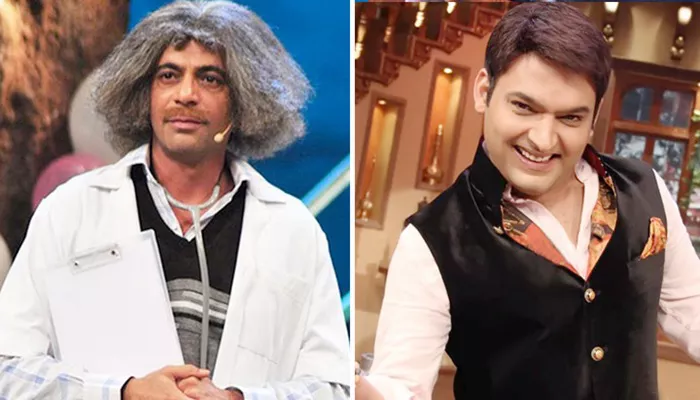Kapil Sharma is one of India’s most popular comedians, with millions of fans both in India and abroad. However, his humor has often been criticized for relying on outdated stereotypes and humor at the expense of others. Recently, a conversation between Kapil and Jawan director Atlee sparked controversy, bringing into question whether the comedian needs to reconsider the jokes that have made him famous.
In a recent episode of The Kapil Sharma Show, Kapil made a comment about Atlee’s success at a young age. He remarked that Atlee didn’t “look” like an established director, prompting backlash from social media users who deemed the remark inappropriate and even racist. Kapil’s question to Atlee—whether stars would ask “where is Atlee?” when meeting him for the first time—was met with a composed response from Atlee, who emphasized the importance of judging people based on their abilities, not their appearance.
“I think the world should see that. We should not judge by appearance. You have to judge by your heart,” Atlee said, addressing the comment indirectly. This response fueled the controversy, with many interpreting Kapil’s remark as a jab at Atlee’s skin tone or physical appearance. Kapil later clarified on social media, asking followers not to spread hate, and insisting that he had never commented on Atlee’s looks.
However, this incident raises a broader question: why did Kapil feel the need to comment on Atlee’s appearance in the first place? This is not the first time Kapil has made remarks about people’s appearances on his show. Whether it’s jokes about weight, gender, or skin tone, his humor often relies on mocking others for their looks or personal traits.
In a previous episode featuring actor Nawazuddin Siddiqui, Kapil made a joke suggesting that if either he or Nawazuddin were the leads in the film Raees, the title would have been “Dhanda Gareeb Ka” (The Poor Man’s Business). The same episode included a skit by Sunil Grover and Kiku Sharda that mocked Sharda’s weight by referencing a supposed alcohol container hidden under her costume. In another instance, Kapil’s comments about co-star Sumona Chakravarti’s lips left her visibly upset. She later spoke about how Kapil had made an off-script comment about her appearance, which affected her deeply.
Kapil has also been known for making flirtatious and sometimes inappropriate comments toward female guests. During an episode with journalist Sweta Singh, Kapil remarked, “Sweta, you’ve created a revolution in news. Earlier, only old people used to watch the news, now all young men watch it because of you.” Such remarks, while intended as humor, often veer into sexism and imply that a woman’s success is tied to her appearance rather than her talent.
The question remains: Why has this style of humor, rooted in classism, body-shaming, and misogyny, been allowed to persist for so long? Perhaps because it mirrors the broader patterns in mainstream Hindi cinema, where humor has often been derived from mocking people based on their looks, abilities, or backgrounds. While filmmakers and writers have become more sensitive in recent years, humor based on stereotypes—whether it’s mocking people with disabilities, speech impediments, or particular sexual orientations—still exists in popular media.
For years, Kapil’s show has recycled these harmful tropes, reflecting a deeper societal issue. The jokes often rely on “punching down,” targeting people who don’t fit conventional standards of beauty, behavior, or success. This kind of humor, while popular, encourages viewers to laugh at others’ expense rather than challenging societal norms.
Erma Bombeck, the renowned writer, once said, “There is a thin line that separates laughter and pain, comedy and tragedy, humor and hurt.” Truly great comedy requires wit, intelligence, and an understanding of human complexity. It should be about highlighting the absurdity in life, not reducing people to stereotypes for easy laughs.
After over a decade of using the same format, it’s time for Kapil Sharma and his team to reassess their approach. As audiences, we must also reflect on the kind of content we support. If we continue to laugh at jokes that rely on bullying, body-shaming, or sexism, what does that say about us? It might be time for a change in both the comedy we consume and the way we perceive humor in the years to come.

